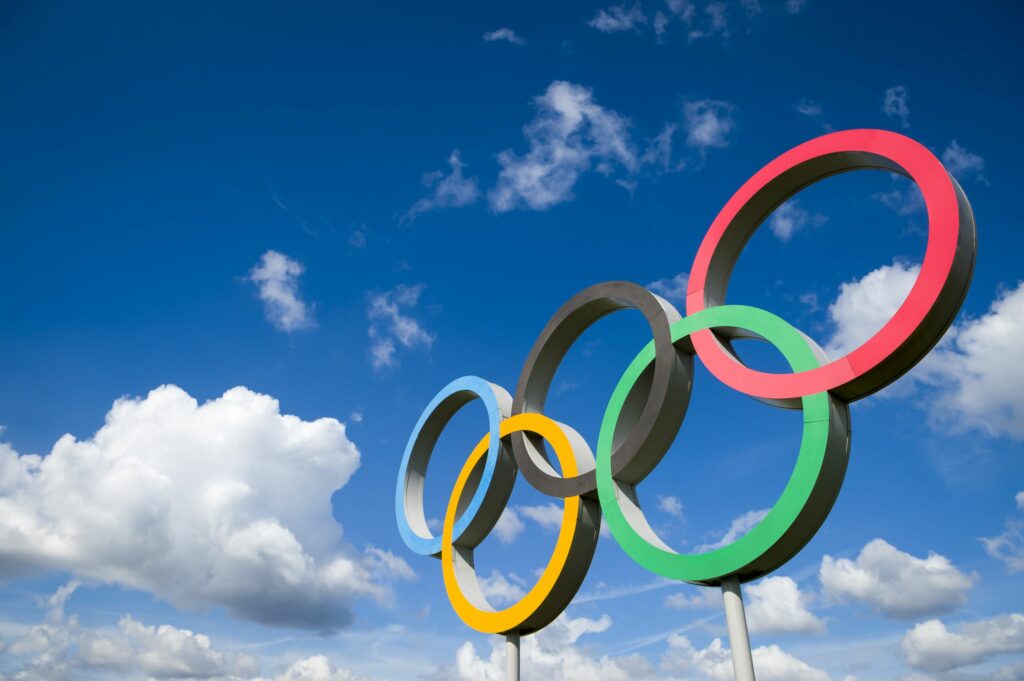Triple threat
Canadian track cyclist Georgia Simmerling is the first, and only, Canadian to compete in three different sports at three different Olympic Games: alpine skiing (Vancouver 2010), ski-cross (Sochi 2014) and track cycling (Rio 2016). After claiming bronze in the women’s cycling team pursuit in Rio, Simmerling will take to the track once again in Tokyo.
Major games’ influence on sport participation
Can the Olympic and Paralympic Games influence the sport participation of youth in the host communities? Research suggests that participation impacts may be most likely among youth populations, active and inspired spectators, and within communities that are home to event venues and medalists.
How time of day effects performance
Although Olympic athletes are known for their meticulous pre-competition routines, many aspects of competition are out of their control. For example, research shows that Olympic swimmers have 0.32% improved performance when they race in the evening compared to in the morning—showing that time of day could be enough to make or break a podium performance.
Rise of the athlete voice
“As athletes, we’re being taken more seriously and senior leaders are asking for our opinions – not because they feel they have to check a box, but because they believe we have something important to bring to the table.” – Seyi Smith, Chair of the COC’s Athletes’ Commission and two-time Olympian, reflects on the rise…
Summer’s Olympics
Fourteen-year-old Toronto-based swimmer Summer McIntosh is Canada’s youngest Olympian in Tokyo. In June, the Grade 9 student won the 200m freestyle at the Canadian Olympic Trials, beating out 2016 Olympic champion Penny Oleksiak. Make sure to watch this rising star and the rest of Canada’s Olympic swim team in action until August 1 in Tokyo!
Tokyo 2020 Olympic Games
The Tokyo 2020 Olympic Games officially open today and continue through Sunday, August 8. With 370 athletes and 131 coaches attending, this is the largest contingent of Canadian athletes at an Olympic Games since Los Angeles 1984.
Flashback
Tokyo last hosted the Olympic Games in 1964. At that edition of the Games, Canada’s only gold-medalists were men’s pair rowers Roger Jackson and George Hungerford. As Canada’s largest rowing team in 25 years gears up for Tokyo 2020, Kai Langerfeld and Conlin McCabe will be looking to repeat history in the same event. The…
Heat acclimatization
The Tokyo Olympic and Paralympic Games are expected to be among the hottest ever recorded. As athletes prepare for the games, researchers have found that heat acclimatization is the best measure to protect health and performance. This can include 60 to 90 minutes of daily training in the heat for one to two weeks before…
The evolution of the active economy

Highlights In November 2018, Calgarians participated in a plebiscite to decide if the city should proceed with a bid to host the 2026 Olympic and Paralympic Games. Calgary’s shot at hosting its second Olympics and first Paralympics came to an end as 56.4% opposed bidding. This was perhaps the final straw in what we, Calgary-based academics at Mount Royal University, had seen…
Preparing for an Olympic and Paralympic Games like no other

Highlights SIRC asked former sports journalist Teddy Katz to sit down (virtually) with leaders from the Canadian Olympic Committee (COC) and Canadian Paralympic Committee (CPC) for a behind-the-scenes look at the challenges of preparing for 2 Olympic and Paralympic Games amid a global pandemic. After a one-year postponement, the Summer Games, set to be held in…